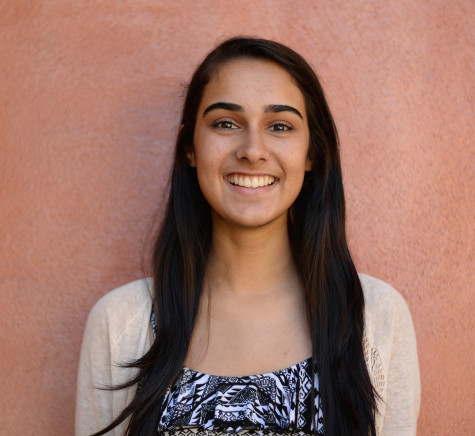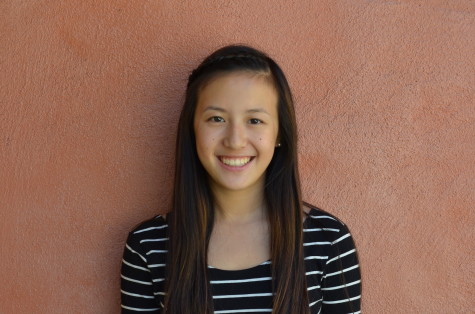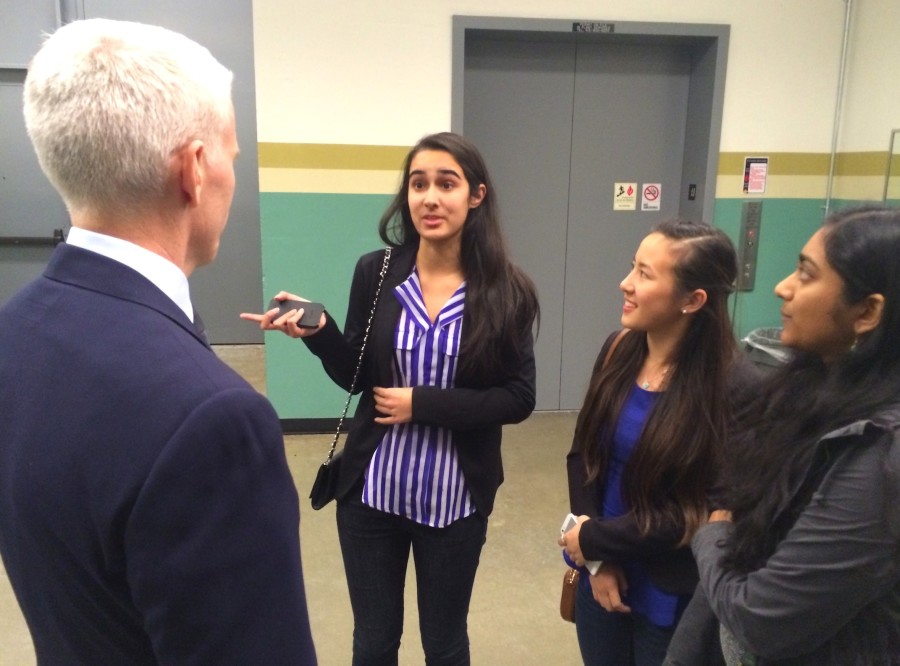Anderson Cooper shares his journey in the field of journalism
CNN journalist and news anchor Anderson Cooper shared his experiences covering stories around the world through presentations on Wednesday, Thursday and Friday from 8 p.m. to 9:30 p.m. at De Anza College’s Flint Center for the Performing Arts.
He was invited as one of the seven speakers for this year’s Celebrity Forum Speaker Series held each year at De Anza. His presentation, which was followed by a Q&A session, explained how he went from a college graduate with no journalism education to an Emmy, Peabody, GLAAD Media and National Headliner Award winner.
A year after his graduation from Yale University, he decided that he wanted to be a war correspondent, but soon discovered that no major news channel wanted to hire him.
“If no one was going to give me a chance, I’d have to take a chance,” he said.
During Harker Aquila’s exclusive interview with Cooper, he emphasized the importance of hard work for those who are interested in becoming journalists in the future.
Cooper was never handed opportunities in the field of journalism when he first began his career, so he managed to take advantage of what he had to create his own. Armed with a fake press pass and a home video camera, he embarked on his first journalism venture to cover the starvation crisis in Somalia. During his time in Africa, Cooper experienced true horror for the first time in his life. It was the first time he had ever had a gun pointed at him; it was the first time that he watched a child die in front of his eyes.
“You expect to see horror, but discover humanity as well,” he said. “It’s easy to turn away from the suffering.”
As a reporter, Cooper finds importance in facing the things that scare him most and often finds himself running towards what he is supposed to be running away from.
“I don’t believe in fear determining how you live your life,” he said. “Jump into what you fear the most.”
While out reporting in the field, Cooper has often come face to face with horrific images that he will never forget. Despite the degree of atrocity he witnesses, he never allows his personal opinion to alter the manner in which he covers a story. He tries to put himself in the shoes of the individuals on both sides of the story so he can objectively convey the facts.
Despite the number of serious situations he has been in, Cooper manages to convey his sense of humor occasionally while reporting.
“I have the sense of humor of a 12-year-old boy and the laugh of a 12-year-old girl,” he said.

Sabrina Sidhu, senior, is Editor-in-Chief of the TALON yearbook. This is her fourth year on staff, and over the years she has been both a reporter and...

Shannon Su is the Managing Editor and Executive News Director of Harker Aquila. She joined the program as a reporter her freshman year and has held many...


















![“[Building nerf blasters] became this outlet of creativity for me that hasn't been matched by anything else. The process [of] making a build complete to your desire is such a painstakingly difficult process, but I've had to learn from [the skills needed from] soldering to proper painting. There's so many different options for everything, if you think about it, it exists. The best part is [that] if it doesn't exist, you can build it yourself," Ishaan Parate said.](https://harkeraquila.com/wp-content/uploads/2022/08/DSC_8149-900x604.jpg)




![“When I came into high school, I was ready to be a follower. But DECA was a game changer for me. It helped me overcome my fear of public speaking, and it's played such a major role in who I've become today. To be able to successfully lead a chapter of 150 students, an officer team and be one of the upperclassmen I once really admired is something I'm [really] proud of,” Anvitha Tummala ('21) said.](https://harkeraquila.com/wp-content/uploads/2021/07/Screen-Shot-2021-07-25-at-9.50.05-AM-900x594.png)







![“I think getting up in the morning and having a sense of purpose [is exciting]. I think without a certain amount of drive, life is kind of obsolete and mundane, and I think having that every single day is what makes each day unique and kind of makes life exciting,” Neymika Jain (12) said.](https://harkeraquila.com/wp-content/uploads/2017/06/Screen-Shot-2017-06-03-at-4.54.16-PM.png)








![“My slogan is ‘slow feet, don’t eat, and I’m hungry.’ You need to run fast to get where you are–you aren't going to get those championships if you aren't fast,” Angel Cervantes (12) said. “I want to do well in school on my tests and in track and win championships for my team. I live by that, [and] I can do that anywhere: in the classroom or on the field.”](https://harkeraquila.com/wp-content/uploads/2018/06/DSC5146-900x601.jpg)
![“[Volleyball has] taught me how to fall correctly, and another thing it taught is that you don’t have to be the best at something to be good at it. If you just hit the ball in a smart way, then it still scores points and you’re good at it. You could be a background player and still make a much bigger impact on the team than you would think,” Anya Gert (’20) said.](https://harkeraquila.com/wp-content/uploads/2020/06/AnnaGert_JinTuan_HoHPhotoEdited-600x900.jpeg)

![“I'm not nearly there yet, but [my confidence has] definitely been getting better since I was pretty shy and timid coming into Harker my freshman year. I know that there's a lot of people that are really confident in what they do, and I really admire them. Everyone's so driven and that has really pushed me to kind of try to find my own place in high school and be more confident,” Alyssa Huang (’20) said.](https://harkeraquila.com/wp-content/uploads/2020/06/AlyssaHuang_EmilyChen_HoHPhoto-900x749.jpeg)



